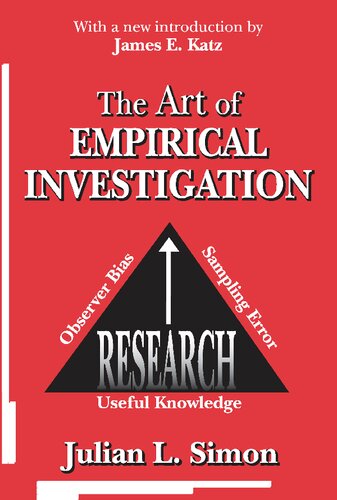

Most ebook files are in PDF format, so you can easily read them using various software such as Foxit Reader or directly on the Google Chrome browser.
Some ebook files are released by publishers in other formats such as .awz, .mobi, .epub, .fb2, etc. You may need to install specific software to read these formats on mobile/PC, such as Calibre.
Please read the tutorial at this link: https://ebookbell.com/faq
We offer FREE conversion to the popular formats you request; however, this may take some time. Therefore, right after payment, please email us, and we will try to provide the service as quickly as possible.
For some exceptional file formats or broken links (if any), please refrain from opening any disputes. Instead, email us first, and we will try to assist within a maximum of 6 hours.
EbookBell Team

0.0
0 reviewsJulian Simon was known for his methodical, and often controversial, writings challenging conventional beliefs about overpopulation, pollution, disappearing farmland, and the scarcity of energy sources and raw materials. But throughout his works is a common theme: that responsible, unbiased research and examination of the data is indispensable to formulating a well-informed and accurate opinion. The Art of Empirical Investigation teaches student, professor, researcher, and those interested in ascertaining the truth about social issues just how to proceed.
The Art of Empirical Investigation is a textbook on the basics of social-scientific research. It discusses all the important empirical methods used in social science, and its examples, drawn from a wide variety of academic and applied fields, illustrate the use of each method in its most appropriate context. The actual decisions a researcher must make at every stage of a project are emphasized, as well as obstacles to knowledge--such as observer bias, deception, unreliability of data, and sampling costs--and how to overcome them. Presupposing nothing, the book introduces the reader to the foundations of empirical social-science research, regardless of a specific field. It also makes an important contribution to beginning researchers' understanding of an operational definition of causality, which cuts through philosophical obscurity and teaches the researcher how to decide whether or not a given relationship is causal.